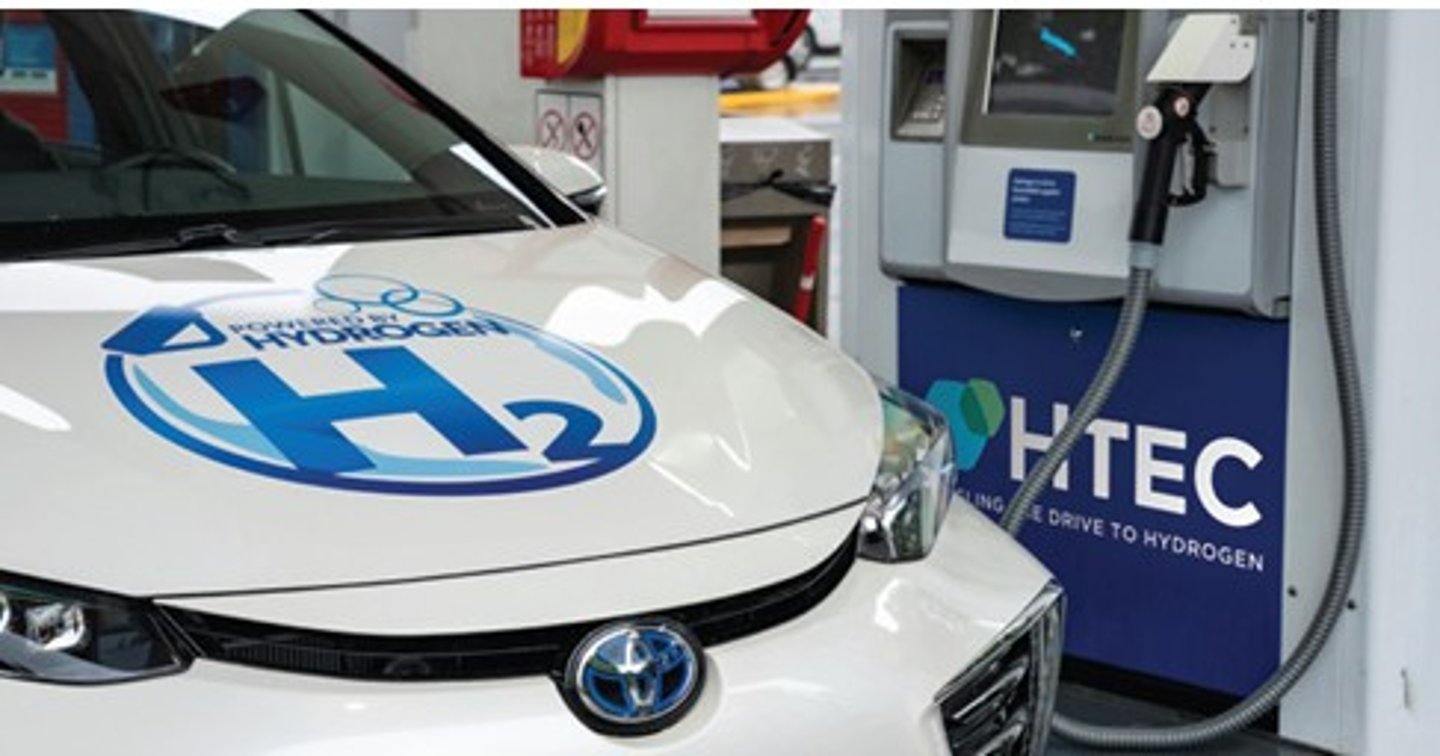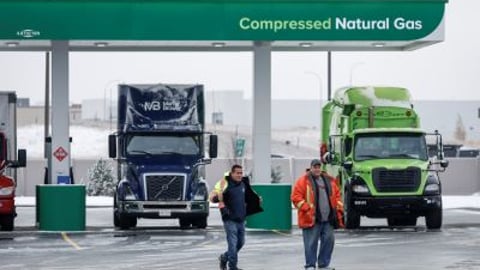HTEC opens new hydrogen refuelling station with 7-Eleven Canada
HTEC has announced the opening of its sixth retail light-duty hydrogen refuelling station, located at 688 Southeast Marine Drive in Vancouver, B.C., in partnership with 7-Eleven Canada and utilizing Cavendish Hydrogen equipment.
HTEC designs, builds, owns, and operates Canada’s first network of hydrogen refuelling stations. The Southeast Marine Drive location joins HTEC’s five existing stations in the Lower Mainland, Kelowna, and Vancouver Island, marking another important milestone in making hydrogen a viable alternative fuel for customers seeking low-carbon transportation options.
“We’re excited to see this new station come online—it’s another step forward in building a hydrogen ecosystem to decarbonize the transportation sector that the HTEC team has been working toward for years,” says Colin Armstrong, president and CEO, HTEC. “We’re grateful for the support we’ve received from the CIB, as well as from both federal and provincial governments, and our partners. Most of all, we’re thankful for our customers—the early adopters whose continued commitment is helping drive this transition to a cleaner future.”
The Southeast Marine Drive station is primarily designed for light-duty fuel cell electric vehicles (FCEVs), such as passenger cars like the Toyota Mirai and Hyundai NEXO, as well as other commercially available hydrogen models,” says Patric Ouellette, vice-president of stations and distribution with HTEC.
“These vehicles can refuel at the station in less than 6 minutes, the standard for light-duty hydrogen. Our team is currently exploring the feasibility of adding fueling solutions for small trucks in the future, however, this initiative is in its early stages,” he adds.
The development of this station was partially financed by the Canada Infrastructure Bank (CIB) through its Charging and Hydrogen Refueling Infrastructure (CHRI) initiative, announced last year, which supports private-sector deployment of large-scale clean transportation infrastructure. This investment also contributes to HTEC’s broader H2 Gateway Program rollout, including hydrogen production and liquefaction facilities, additional refueling stations, and zero-emission fuel cell electric trucks.
HTEC’s H2 Gateway program is all about creating a regional, interconnected hydrogen ecosystem, focusing on the Lower Mainland first, Ouellette says. By rolling out production facilities, refueling stations, and heavy-duty fleet support in a localized manner, HTEC says it will work across the whole hydrogen value chain—addressing both demand and supply.
“The Southeast Marine Drive station is part of this program. It expands our light-duty fueling network in the region and provides the infrastructure needed to support the transition to zero-emission vehicles. As more fleets and early adopters embrace hydrogen, this station helps reinforce our goal of making hydrogen a practical, accessible alternative fuel in B.C,” Ouellette continues.
Additional support was provided by Natural Resources Canada (NRCan) through the Electric Vehicle and Alternative Fuel Infrastructure Deployment Initiative, and by the Canadian Hydrogen Association (CHA) through the CleanBC Go Electric Hydrogen Fueling Infrastructure Program—a collaborative effort between B.C. Ministry of Energy and Climate and CHA to expand hydrogen refuelling infrastructure in the province.
“We currently own and operate six light-duty hydrogen fueling stations open in British Columbia, plus a seventh station that we operate for UBC,” Ouellette says. “We're taking a thoughtful, data-driven approach to expanding, ensuring each new station aligns with market needs, customer adoption, and regional demand. For now, our focus is on optimizing the existing network to support early adopters and guarantee reliable service.”
Partnering with 7-Eleven Canada
HTEC’s relationship with 7-Eleven Canada began in 2019, and since expanded to includethree additional stations, located in North Vancouver, Vancouver Island and Kelowna bringing the total to four in B.C. fuelling stations in the province
“Our collaboration is based on a shared goal of making low-carbon transportation more accessible,” Ouellette said. “While we haven’t formally announced any future sites, we’ll continue to explore opportunities to expand hydrogen fueling at 7-Eleven Canada locations. By bringing together 7-Eleven Canada’s convenience retail expertise and HTEC’s hydrogen infrastructure experience, we aim to provide more options for drivers seeking zero-emission travel. Having a hydrogen fueling location at a 7-Eleven Canada station adds convenience and accessibility for drivers, as they can refuel their vehicles and pick up essentials in one stop. For HTEC, it means positioning our hydrogen infrastructure in a familiar, strategically located setting where people already expect to find fueling options.”
“7-Eleven Canada achieves another milestone with the opening of its fourth hydrogen refueling station in partnership with HTEC,” says Marc Goodman, vice-president and general manager of 7-Eleven Canada. “Our expanding refuelling network is making alternative energy options more accessible to our customers. Canadians can be proud of their home-grown hydrogen energy industry, from the local fuel cell technology, to the locally sourced hydrogen, to the local value-added partnership between HTEC and 7-Eleven Canada.”
To date, HTEC’s hydrogen station network has dispensed about 102,500 kilograms of hydrogen and supports up to 300 hydrogen electric vehicles in B.C.
“We are excited to see yet another HTEC provisioned hydrogen fuelling station soon to become operational in the province as part of the CleanBC Go Electric Hydrogen Fueling Infrastructure Program,” adds Todd Romaine, executive director, B.C., CHA. “Hydrogen fuelling stations will support the market adoption of hydrogen vehicles and help support provincial decarbonization objectives. HTEC has been a proven provider of this technology knowhow and infrastructure, demonstrating that innovation and skillsets are available right here in B.C.’s burgeoning hydrogen sector.”




